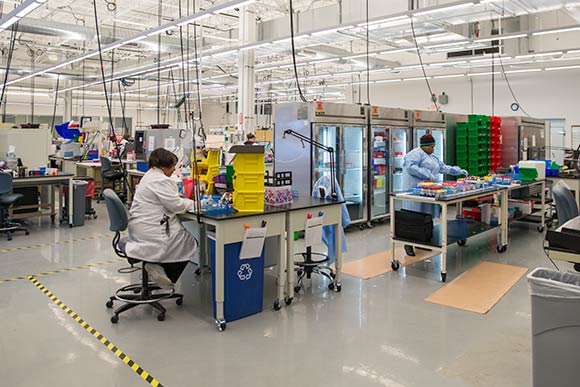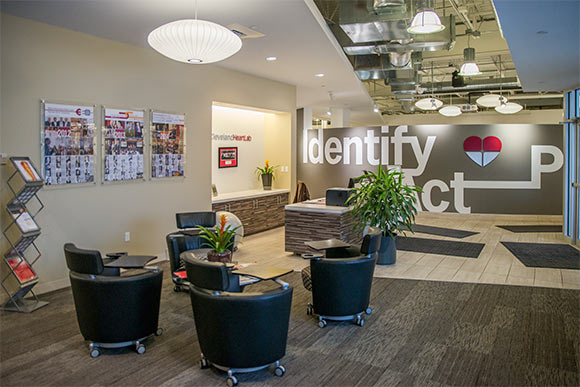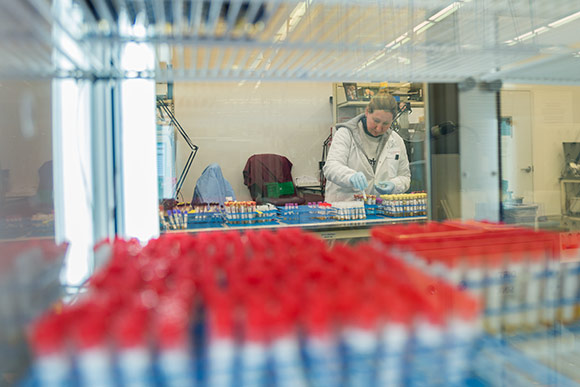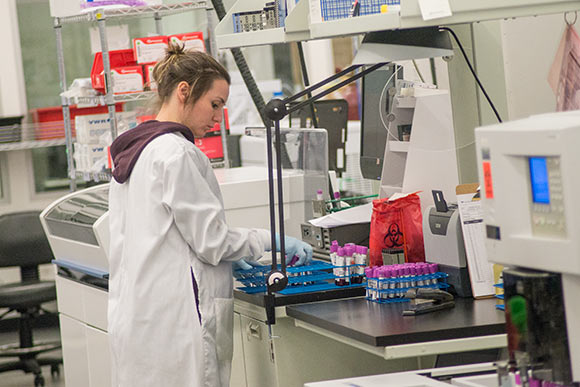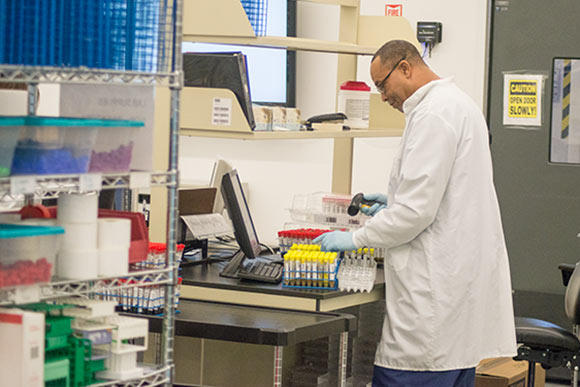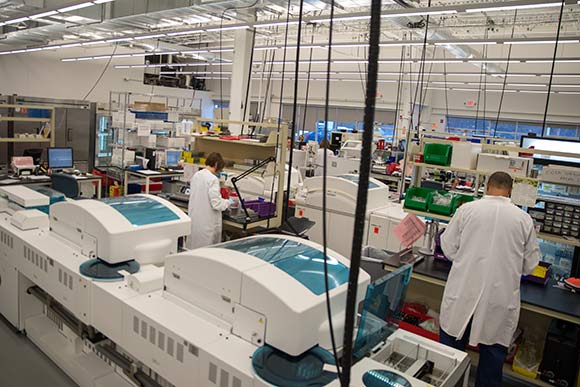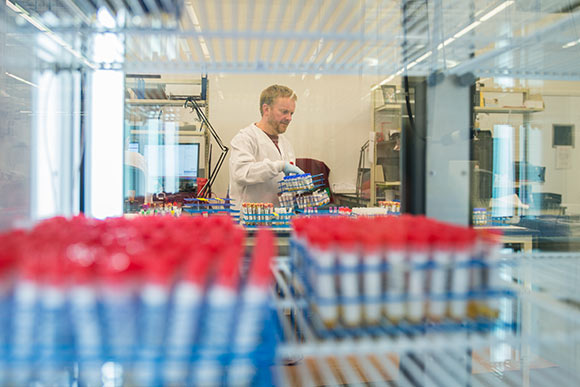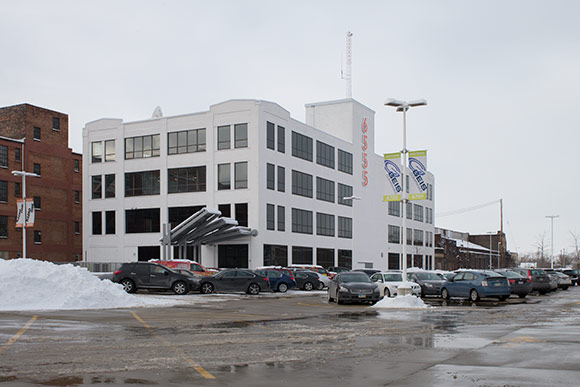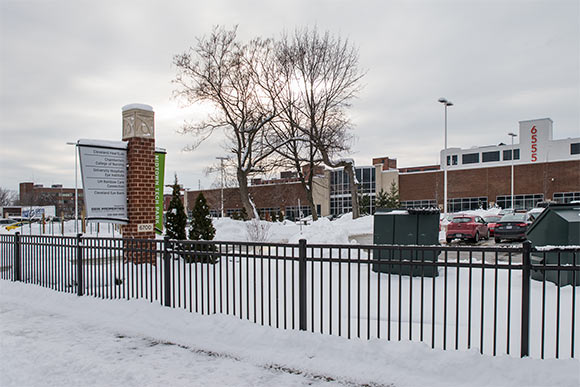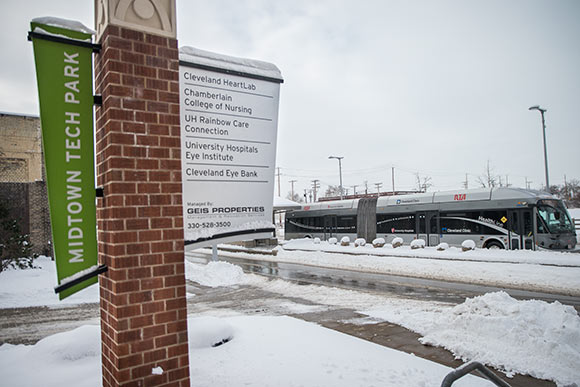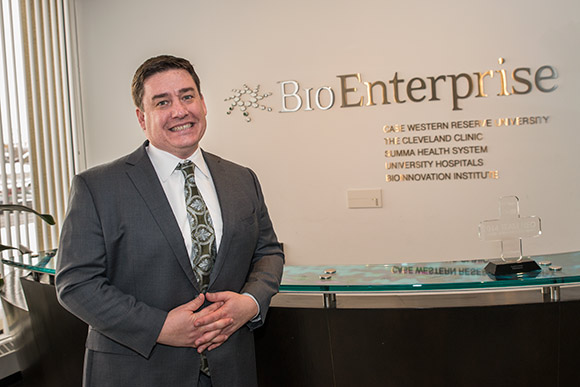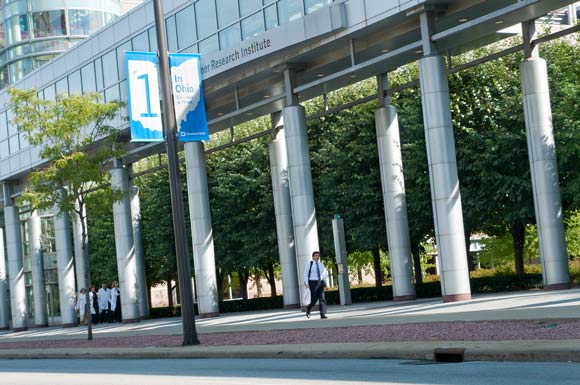health-tech corridor vision is becoming a reality
In 2011, Cleveland HeartLab was looking for space to accommodate the rapidly growing company. HeartLab had surged from eight employees to 80 at the time and was expecting more growth. The company, which provides clinicians with biomarkers that are predictive of cardiovascular risk, wanted to stay within Cleveland city limits, but they were having trouble finding the right offices.
“We looked everywhere,” recalls HeartLab CEO and president Jake Orville. “We looked in Independence, Valley View, places that could accommodate our growth.”
Then they discovered the Health-Tech Corridor (HTC) in the city’s MidTown. In its infancy in 2011, the vision of turning a three-mile stretch between downtown and University Circle into a hub for health, high-tech and research companies appealed to Orville. And developer Fred Geis of Geis Companies was offering the kind of space HeartLab needed, complete with free parking.
“Given what we were looking for as a young emerging company, it’s what we were hoping for,” says Orville. “It’s all about location, location, location. The Health-Tech Corridor is perfectly situated in the city, not far from the hospitals and downtown.”
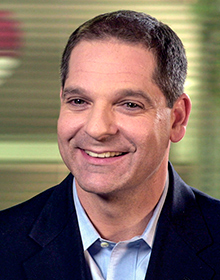 Jake Orville of HeartLab
Jake Orville of HeartLab
HeartLab’s situation is exactly why Geis set his eye on developing the Health-Tech Corridor and MidTown Tech Park, a 241,000, three-building spread that is today about 90 percent occupied. “Over the years many companies have moved out of Cleveland,” explains Geis. “A lot of that is because of the aging building stock didn’t meet their standards. We thought we could build to meet the needs of the modern company.”
Cleveland HeartLab, today with more than 100 employees, remains in its space in the MidTown Tech Park. “We were the first fresh new construction,” Orville boasts. “We do consider ourselves one of the first tenants. It was the only place we could go that could initially support our growth, the only place that could house high-growth startup tech companies at the time.”
Today, the HTC is well on its way to fulfilling the vision early developers had of creating a community in Cleveland for high-tech and biotech companies, technology startups and investors. The HTC is currently home to more than 80 biomedical companies; more than 30 technology companies; eight business incubators; four healthcare clinical and research institutions; and four higher education institutions.
“We have 135 companies in health tech or high tech, the Offices at the Agora has lots of startup companies and is completely full and Fred Geis is planning a second Midtown Tech Park," says HTC Director Jeff Epstein. "And we’re getting a 100 gigabit-per-second glass fiber internet pipe – the first commercially available in the United States.”
He sums it up this way: "Five years ago there was nothing. Today we have one million square feet in renovated space, a $70 million investment from the city leveraged and $215 million in private investment. And the growth is starting to radiate.”
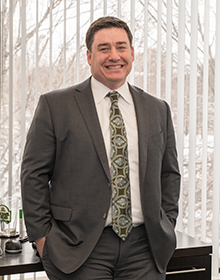 Aram Nerpouni
Aram Nerpouni
Sense of Place
The businesses in the HTC have created a high-tech community of sorts – with collaborations, comradery and a sense of common goals. The HTC’s proximity to hospitals, universities, top talent and investors make the area attractive to growing tech companies.
“There’s an energizing feel with a bunch of startup and health care companies,” explains Orville. “I think now were starting to get that community feel.”
Many of the companies located in the HTC do feel a sense of comradery in the district. “Well-defined geography helps folks align,” says Aram Nerpouni, president and CEO of BioEnterprise. “That kind of interaction feeds itself. There’s a fair amount of collaboration and Cleveland is fortunate because we have an embarrassment of riches when it comes to health resources. It a unique asset we’re very fortunate to have.”
Those resources and collaboration are why the HTC was a no-brainer choice for Triple Analytics to locate its offices when founder Cal Al-Dhubaib moved the company out of his spare bedroom. The company is a startup out of CWRU’s Blackstone LaunchPad that helps clinicians leverage big data to personalize the treatment of chronic conditions. “Our solution helps improve quality of care and reduce readmissions by analyzing patient outcomes throughout a hospital system," explains Al-Dhubaib.
Triple Analytics, which has six employees, secured the second-to-last space in the Offices at the Agora in January. “I knew we wanted to be in the Health-Tech Corridor,” Al-Dhubaib says. “That talent pipeline coming from Case and the hospitals is great. It’s great to be in a central location where talent can come to work easily with transit and be accessible to clients.”
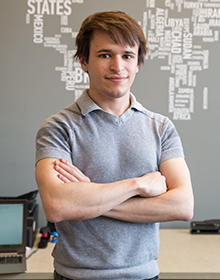 Cal Al-Dhubaib
Cal Al-Dhubaib
Al-Dhubaib has already formed friendships and business connections from being in the HTC. “I love the community here,” he says. “It’s great to see initiatives popping up to support the startup community.”
Cleveland HeartLab’s Orville has seen the HTC evolve into a thriving community for all companies related to healthcare and technology. “Everyone wants a sense of community and now we’re able to have that. It makes a huge difference.”
For instance, Chamberlain College of Nursing is housed one floor up from HeartLab. The two have formed a symbiotic friendship. “They have lecture, training and meeting rooms, I have clinical labs and we do blood work every day,” explains Orville. “The nursing school above us is a huge benefit. In turn, they can send people down to see what a lab looks like.”
Orville points to the startups and incubators in the HTC as equally beneficial. “It’s not just about health IT,” he says. “Startups are the seal of healthcare in general. JumpStart is at the other end of the hall. It’s helpful for them to point to us at the end of the hallway, and vice versa.”
The three organizations may have otherwise never interacted if they weren’t all in the HTC. “What do these three have in common?” asks Orville. “In truth, it’s nothing. But it’s one great example of how it works.”
The feeling is mutual at JumpStart, an economic development organization for entrepreneurs. “It's exciting to be part of the ongoing reinvention of this neighborhood,” says JumpStart CEO Ray Leach. "Healthcare is such a big part of the Northeast Ohio economy and our location along the HTC gives us a great ability to collaborate with the people and organizations who are driving economic growth because so many of them are right down the street."
A Growing Field
The concentration of health technology companies is only going to increase, according to BioEnterprise’s Midwest Healthcare Growth Capital Report, released last month. The report shows top biomedical investors are increasingly looking at Cleveland for investments.
To make room for new tech companies, Geis presented his plan to Cleveland city council in December to develop the former Ohio Knitting Mills site, 12 acres of land on E. 55th Street and Euclid Avenue. “We’re working diligently with MidTown, the City of Cleveland, stakeholders and the business community to get a master plan done for the entire 12 acres,” says Geis.
Geis says the new development will be much like the MidTown Tech Park and should create as many as 200 jobs when occupied. While Geis admits the HTC has not grown as fast as he expected, he says he sees enough success to proceed with the next phase of his vision.
“It’s strategically located and it’s filling in. Not as fast as I had hoped, but it’s pretty obvious we’re succeeding in doing what the city needs – employment, diversity and job retention,” says Geis. “It will be a pre-planned complex like the Tech Park. This is going to be around the tech initiative and 100 percent focused on the Health-Tech Corridor.”
Other properties in the HTC have filled in as well. Population Genetics, a British company that performs genetic marker testing, plans to open its first U.S. office in the Baker Electric Building, which serves as an incubator for tech companies such as Simbionix and Arteriocyte Medical Systems. “They have connections with University Hospitals and they’re excited to be here,” says Epstein of Population Genetics.
The building on 6555 Carnegie, where the Cleveland Flea operated during the holidays, is filling up with tenants, according to Geis, with companies such as Talis Clinical, Radio One and WTWH Media filling two floors. Geis says he is in negotiations with other potential tenants.
Filling in the Gaps
As the HTC continues to thrive, plans are in motion to further development and draw new business to the district. Epstein, who took over as director just six months ago, plans to focus first on making the HTC a presence in Cleveland and beyond.
“2015 and 2016 will focus on attractive value propositions for national and international businesses,” Epstein says. “We’re going to have a lot of focus on marketing, with the re-launch of our website this month that will include interactive mapping."
Epstein wants to continue to foster the sense of community among existing companies, focusing on the social aspects of the HTC. “One of the things, as a goal moving forward, is to create more opportunities for interaction between companies,” he says. “We’re excited about working together with MidTown on residential, retail and restaurant amenities.”
HeartLab’s Orville would like to see the social component in the HTC expanded. “There’s room for companies, room for restaurants and food services,” he says. “It has a long way to go, but it’s been growing.” Geis says plans are in the works for a greater retail and restaurant presence in the corridor.
Epstein is clear about what he envisions: “As we see residential development pushing east from downtown and pushing west from University Circle, the grand vison is a seamless connection of … innovation and business between Cleveland State University and Case Western Reserve University. That’s what keeps me burning each day.”


